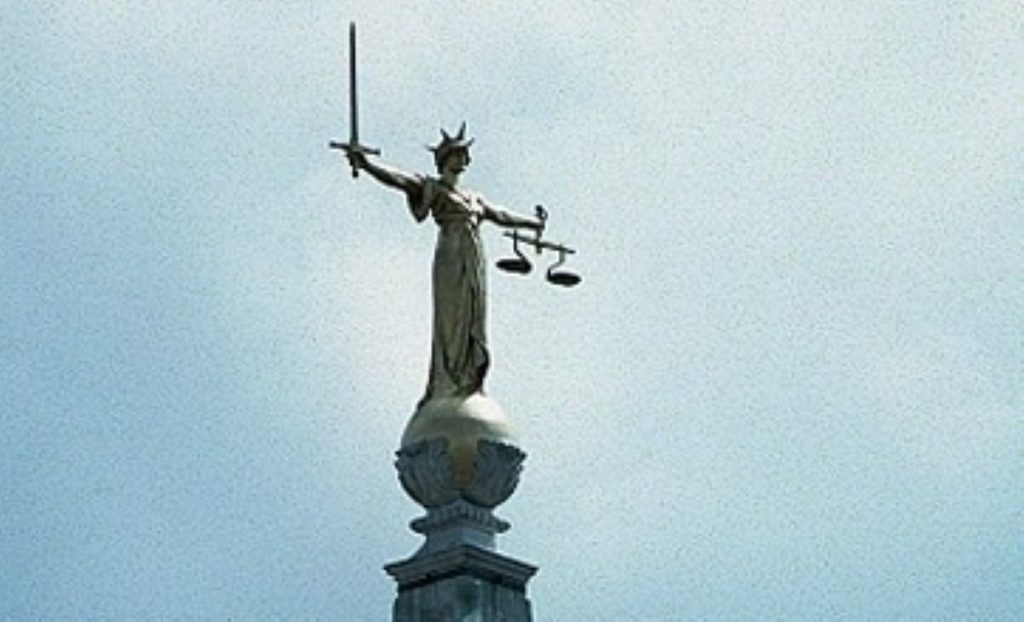Comment: How Grayling encouraged innocent people to plead guilty
By Andrew Neilson
A mother who stole three bottles of baby milk from a supermarket. A woman found begging in a car park. A man who kicked a flower pot after being stabbed. These people are among the thousands who have been ordered to pay a controversial new charge which penalises the poor and encourages the innocent to plead guilty. And now it appears the charge is impacting negatively on victims.
The criminal courts charge was the parting shot of Chris Grayling, the never knowingly popular justice secretary of the coalition government. Having forced through unwieldy probation reforms, interfered with prisoners' access to books and slashed legal aid, Grayling has many policy crimes on his record. But with the criminal courts charge coming into force just before the general election, he really outdid himself.
Since April 2015, magistrates and judges have been told they must impose a mandatory criminal courts charge of up to £1,200 on anyone convicted of an offence, whatever their circumstances might be. This is on top of fines, compensation orders, victim surcharges and costs. There are even plans to charge interest and people can be sent to prison if they can't pay.


Grayling introduced the charge because the Ministry of Justice is trying to save money. The idea was that the charge would recover some of the cost of administrating criminal courts. This is separate from when costs are awarded in criminal cases – because those costs cover the prosecution. The criminal courts charge instead goes towards the running of the court itself.
In a magistrates' court, the charge rises from £150 for pleading guilty to a summary offence to £520 for a conviction after a not-guilty plea. In the crown court, the charge stands at £900 for a guilty plea and £1,200 for a conviction after a not-guilty plea.
The Howard League has launched the criminal charge campaign to highlight the iniquity of this charge. The measure is unfair and unrealistic.
The charge is unfair because these escalating costs put pressure on people to plead guilty at the earliest opportunity, even if they have not committed an offence. It is unrealistic because the mandatory nature of the charge means that sentencers must impose it even when it is clear the person before them does not have the means to pay.
The Howard League has been highlighting dozens of cases of petty offences reported in the local media, which show how the charge is making a mockery of the justice system. People who are homeless and begging, addicted to drugs and alcohol, or with mental health problems are being given charges when it is unclear how they will ever make the payment. Already magistrates have resigned in protest at having to impose the charge.
Now an unintended consequence has revealed itself, and it might just be the last nail in the coffin for this ill-starred initiative.
The Huddersfield Daily Examiner has reported a case where a judge was unable to award compensation to the victim of an unlawful wounding because the convicted defendant had to pay the criminal court charge of £900. This is the first of what will surely be many cases where sentencers – their hands bound by the mandatory nature of the charge – find that the scope to exact compensation for victims is hampered, if not completely curtailed. We have also heard from lawyers that some sentencers are not awarding costs because they are imposing the charge, which ultimately means less money for the Crown Prosecution Service – a government agency with its own financial pressures to face.
In other words, the charge is set to prove itself unpopular with defendants and their lawyers, prosecutors, sentencers – and now, with victims. In criminal justice terms, that's the full set. How long can this manifestly unjust measure last in the teeth of such opposition? Grayling's successor, Michael Gove, should bring forward a review of the charge currently scheduled for 2018 and right yet another of his predecessor's mistakes.
Andrew Neilson is director of campaigns at the Howard League for Penal Reform.
The opinions in Politics.co.uk's Comment and Analysis section are those of the author and are no reflection of the views of the website or its owners.












